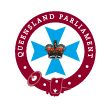Frequently asked questions - Committees
The size of membership of a portfolio committee and the balance of Members between Government and non-Government Members is based on formulae set out in the Parliament of Queensland Act 2001 and depends on the political composition of the Legislative Assembly at the time.
Portfolio committees currently have three Government and three non-Government Members. The Ethics Committee has three Government and three non-Government Members. The Parliamentary Crime and Corruption Committee has four Government and three non-Government Members.
The Leader of the House nominates the Government Members and the Leader of the Opposition nominates the non-Government Members. The Chair of a committee is nominated by the Leader of the House. The Legislative Assembly, by resolution, approves these nominations.
The membership of each committee can be viewed on the 'Membership' page on each committee's web page.
This depends on the committee and its workload. Some committees meet in excess of 60 times a year. Most committees meet at least once each sitting week of Parliament. Committees also meet outside sitting times if issues require consideration.
Reports and transcripts are available on the relevant inquiry page for each committee. Committee secretariats will also email these documents upon request.
Each committee's 'Contact' page provides details on how to get in touch with them. Provide your name, address and the name of the document you want.
Tabled committee documents are also available on-line through the Tabled Papers Database.
You can register your interest in the work of a committee via the Subscribe page on the Parliament's website. This will ensure you receive advice when publications are tabled and notices about committee inquiries and other activities.
Parliamentary committees value input from members of the public including:
- information that may assist their inquiries
- issues that may warrant attention in future inquiries
- comments about their reports and recommendations.
Information on how to make a submission can be found on the relevant inquiry page. If you would like the submission or other information to be kept confidential, please mark on the top of each page 'Confidential'. Include a brief statement of the reasons why you seek confidentiality. Committee members and staff are obliged not to divulge information the committee deems confidential unless the committee or the Legislative Assembly has resolved otherwise.
Submissions to committee inquiries can be found on the Inquiries page for each committee, under the Submissions tab.
